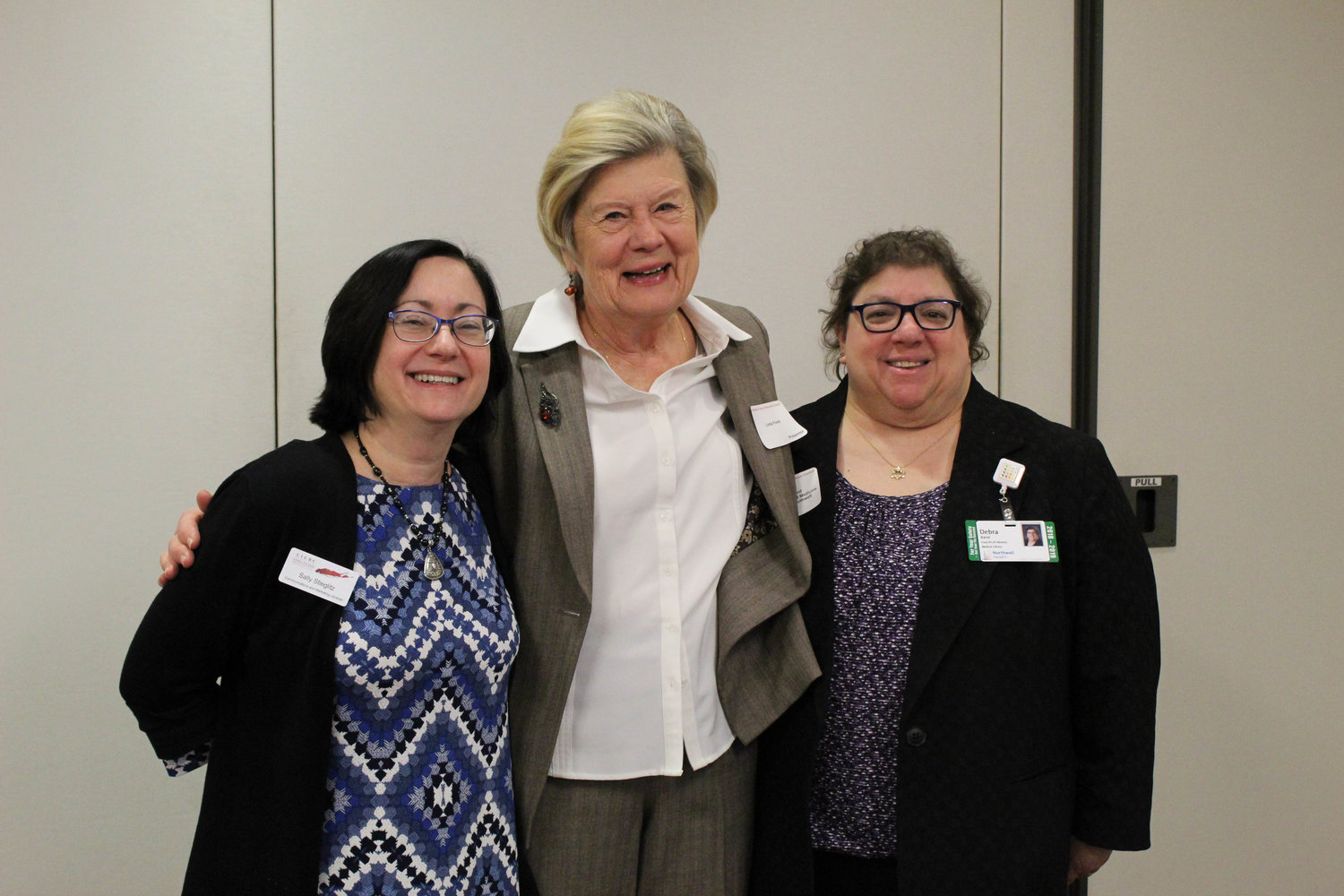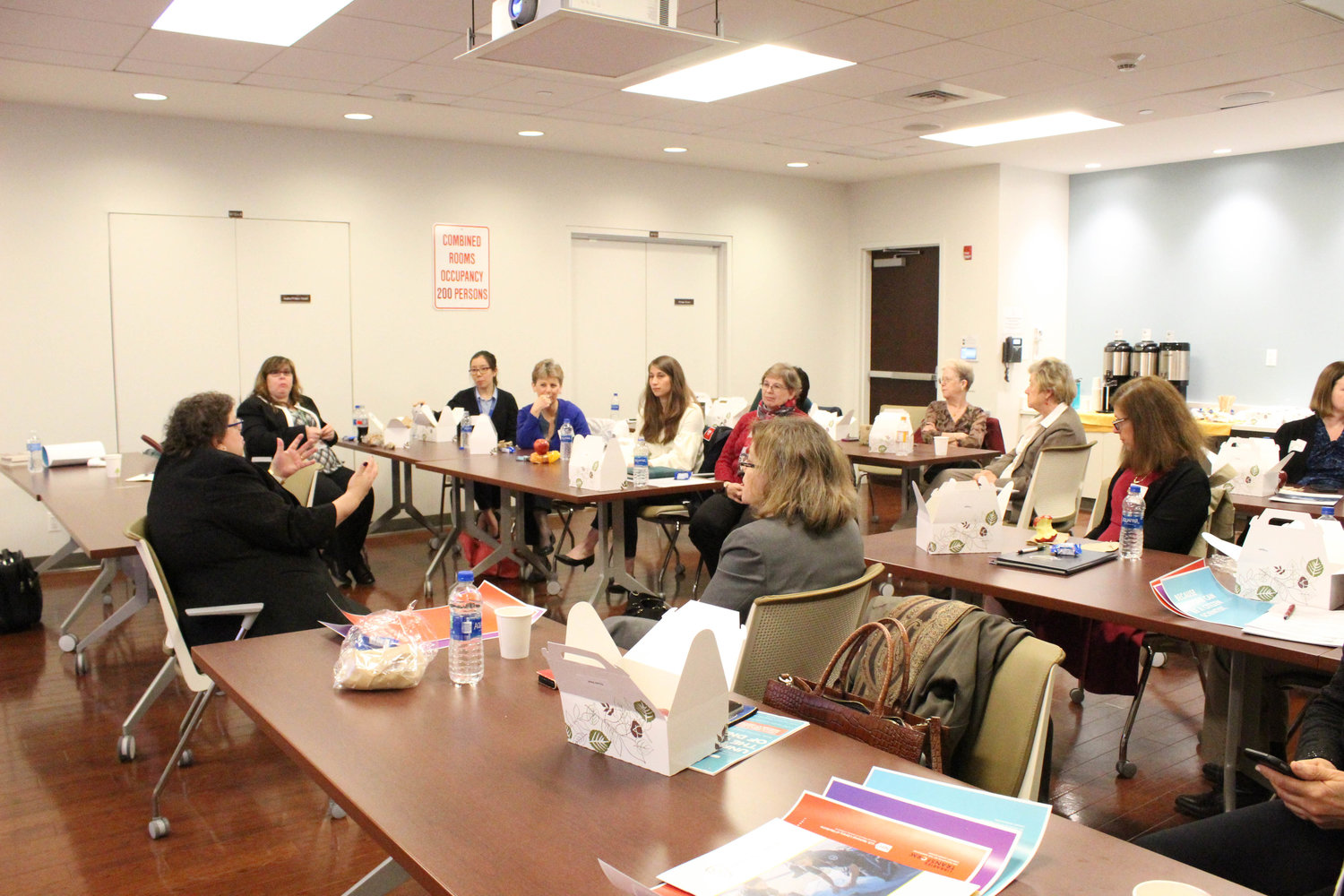DNA in focus at fourth LILRC conference
Chromosomes are like socks: we have no use for one without the other.
The same goes for librarians and research, as exemplified at the Long Island Library Resource Council’s fourth annual Hospital Library Services Program conference, held at Hofstra University’s Donald and Barbara Zucker School of Medicine on April 5.
Asked about its impact on the community, Librarian Marie Westermann said, “Well I think it gives us all, as librarians, a greater understanding of questions that will be coming into us so that we can lead people into the right answers.”
It was a day of learning. Linda Frank, a teacher and author, gave a biology lesson aimed at teaching forensic science in a fun and inviting way. Through this workshop, librarians were able to better their understanding of DNA and how it pertains to crime scene investigations. “The speaker is really excellent, she knows her stuff, and she makes scientific information easy to understand for the general public” Westermann explained.
Through “Unraveling the Mysteries of DNA” Frank taught that DNA is the code of life, the molecule of heredity, and what gives everyone identity. The way life comes to be is through cell reproduction: DNA makes RNA, which makes protein that makes new cells and creates life.
Frank has been giving these presentations for four years and said, “I do men’s clubs, women’s clubs, libraries, temples, anybody who is interested. They’re all in topics of forensic science” Frank explained, “Embedded in all of my lectures are some knowledge about science. It’s kind of been my life mission to give information to the public on topics that they talk about but don’t really understand the background of.”
Debra Rand, a medical librarian, believes collaborating as a regional group enriches the experience. “These are librarians who serve in hospitals and public libraries on Long Island,” she said. “We learned today some interesting background information that we can use on our reference work, with our clients who come in with reference questions and we’re also collaborating with each other so that we can learn from each other.”
Rand also explained, “It’s an opportunity for us to meet as a regional group versus a national meeting. It’s nice to have opportunities for local knowledge sharing.”

 49.0°,
Fog/Mist
49.0°,
Fog/Mist 







